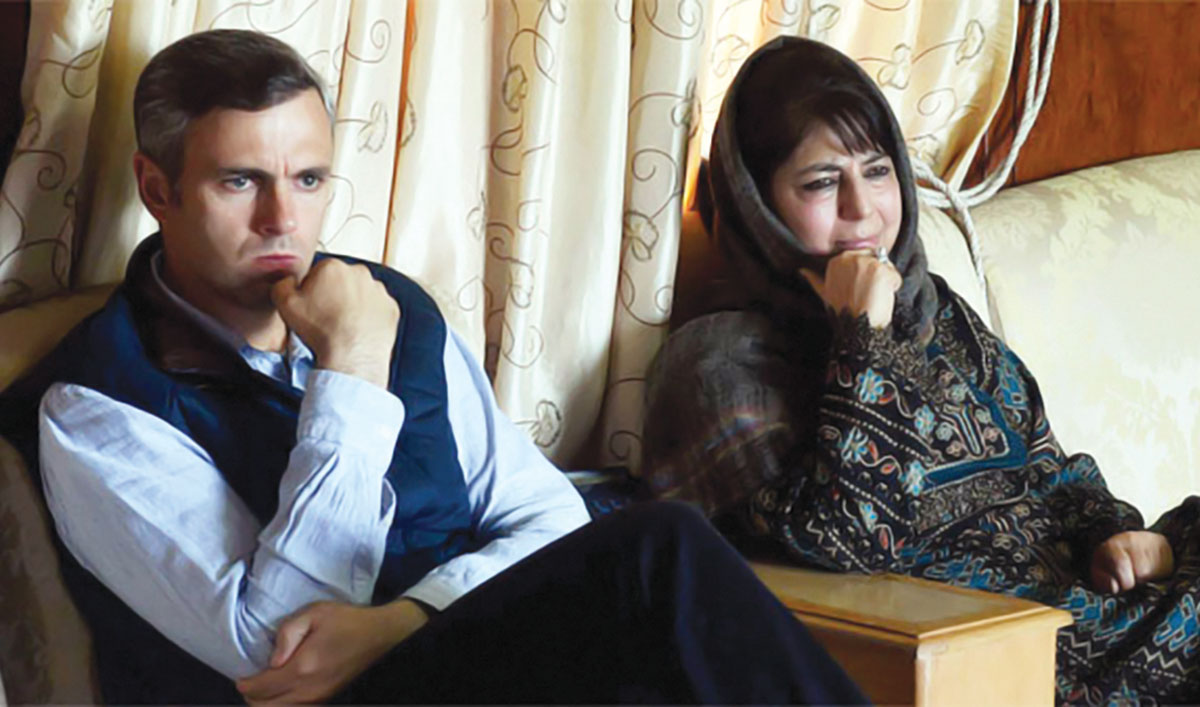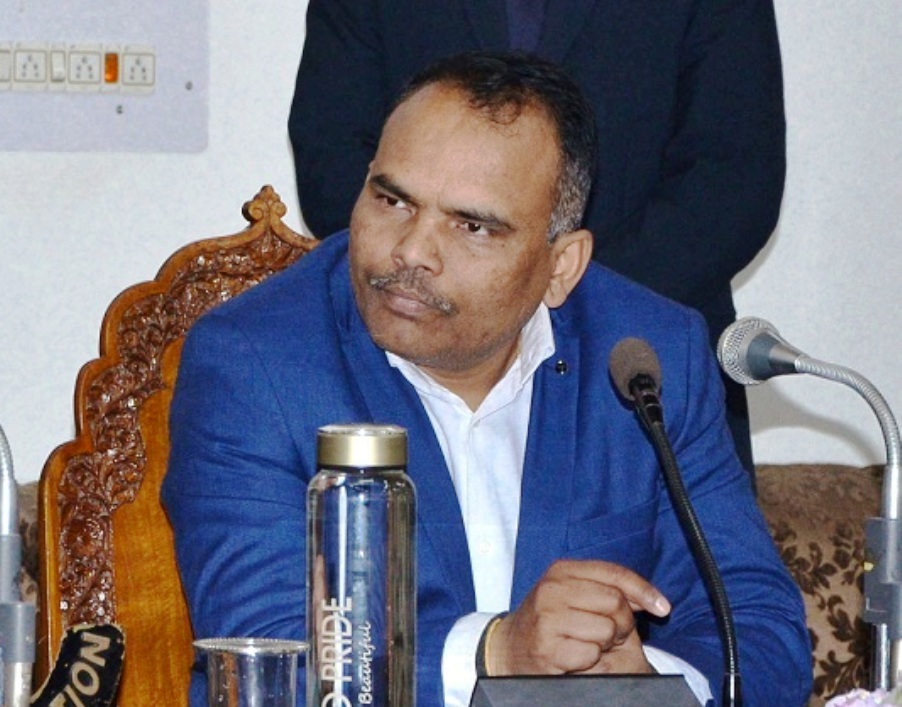Three engineering students in Kashmir invented a remote controlled car and were promised financial help to further develop the idea but had to give up as the assistance never came. Ikhlaq Qadri reports.
A three member group of innovators from valley had developed a prototype car of a Wi-Fi car in November 2009. The car can be driven from anywhere using internet connection. Appreciated in their college and university, the students were assured financial help to work on the idea and take it to higher levels, but as the help never came the budding innovators were forced to look for other career options.
Two of the three have joined J&K Bank as engineers while the other one has gone to pursue M.Tech.
 The three BE computer sciences students of SSM college of Engineering and technology – Peer Ovais Farooq of Lalbazar, Samia Hamid of Gulab Bagh and Rafi Ahmad Jan of Zoonimar, developed the remote controlled car as their 8th semester project work at college.
The three BE computer sciences students of SSM college of Engineering and technology – Peer Ovais Farooq of Lalbazar, Samia Hamid of Gulab Bagh and Rafi Ahmad Jan of Zoonimar, developed the remote controlled car as their 8th semester project work at college.
The project was declared as the best in the college and later on submitted along with its prototype to University Science Instrumentation Centre (USIC) and Entrepreneurship Development Cell (EDC) at University of Kashmir for further development.
On seeing the demonstration the experts at the university termed it as the big achievement and said, “It is an innovation in India.”
The trio gave presentation and submitted CDs of the project to the USIC. The officials, Ovais says, told them that the prototype was to be developed again ‘to complete the step first’. To start afresh they were assured of financial support of around one lakh rupees.
“We were told that for completing step one, we will be given around Rs.1 lakh as per the guidelines,” Ovais told Kashmir Life over phone.
The university considered it for Technopreneur Promotion Programme (TePP).
The students formally applied for TePP and were told that they will get support to develop it further. However, 14 months later, the assured help is yet to come. The students have for now shunned the idea of further developing the remote controlled car. Peer Ovais secured admission in top college of Bangalore with a good GATE score, to pursue M.tech and other two joined a bank.
During the project the students had to scour many cities outside the state to procure requisite parts and equipments for the remote controlled car. They spent Rs 60000 to develop the prototype.
The Wi-Fi car with the wireless computer system can be driven from up to a distance of 3 kilometres.
“It has a live-feed network camera so that it can be driven without line of sight and a horn so that it can honk,” says Ovais.
On the client side, there is a simple interface page which guides a user to navigate the car with ease. The car can move forward as well as reverse and can make both left and right turns with the help of controls provided on client’s PC. The car can also be stopped at will by applying brakes.
“When we run the car it feels like we are in the driver seat and we are driving the car as we have full view of surroundings in front of us,” said Ovais.
Enumerating the benefits of Wi-Fi Robo Car, Ovais said, “The car has practical benefits and scope. We have created the basic prototype and given the logic. It can be modified to fulfil the suitable needs.”
The Robo car can also be used to build an unmanned armoured vehicle, which can be used in militarily operations like bomb detection and firing at the enemy without putting a soldier in the line of fire, he says.The position of opponent can be located from a remote distance and can be dealt effectively.
The three claim that with the advancement in technology the size of car can be reduced considerably which then can act as a spy vehicle as it can transmit both video and audio from the location with the help of Wi-Fi robot.
“Our car will serve as a great solider to save innocent lives,” said Rafi over phone from Gurgaon, where he is currently posted.
The car can be used to save lives in disaster hit areas as it can trace the human beings who are buried under debris of the buildings.
The machine can be connected to access point that are wireless routers and can be operated globally via internet. The car can be operated at any part of the world while sitting at home.
“This is a globally accessible machine which is truly a great advantage,” said Samia Hamid.
The innovators say that the technique can be advanced to auto pilot the machines which need no drivers at all.
 “With the help of this application a person can drive the car with his PC interface from home while the car will be operating at a remote distance,” Samia said.
“With the help of this application a person can drive the car with his PC interface from home while the car will be operating at a remote distance,” Samia said.
The project, they say, was not only to fulfil one of the criteria for getting the degree but a lifetime dream to “innovate something”.
“Since my childhood I had strong desire to innovate something and make a contribution (to society),” Ovais said.
However, they could not pursue the idea in the absence of funding.
“We waited for more than six months. If they only could have arranged a lab and provided facilities to start work, we might have been working on the car project but they failed even to do so,” said Ovais.
The trio termed the approach of the university as “unfortunate” and said, “They (university authorities) have nothing in place to groom the talent. The departments established to help innovation grow are just a media stunt.”
Ovais says that one of the reason that talented, innovative and hardworking people leave the valley for other places is because here nobody encourages the talent.
“This is reason of brain drain. Outside talent is appreciated but in valley it is ignored or even suppressed,” Ovais said.
Experts believe that this car if developed properly, can help in parking, surveillance and other developments.
“We can get car to our office if left in parking lot by operating through Laptop,” said Rouf ul Islam, head research and development computer Sciences, SSM College of Engineering and Technology.
He hoped that it would get implemented but acknowledged that there was uncertainty “I don’t know whether it is going to happen or not. Let us hope for best,” Rouf said.
Recently, on a vacation from his job, Rafi visited the university to enquire about the status of the grant for their car project. “The officials said that they didn’t’ get any reply from DSIR, TePP yet”, Rafi said.
The same officials, he says, had earlier confirmed the sanctioning of the grant money.
The officials at USIC say they are in constant touch with the DSIR (Department for Scientific & Industrial Research), Government of India and are hopeful that the project will go through.
“We had problem of not having liaison with funding agency but good news is few days back we got a TePP centre in USIC, I have recived a communication some days back and we will be sending five projects, and Insha Allah this (wifi car project) will go through,” Dr. Ghulam Mohuiddin Bhat, Director Entrepreneur development cell and coordinator TePP told Kashmir Life.
He said a meeting is scheduled for January 31 in New Delhi to look into the projects.















